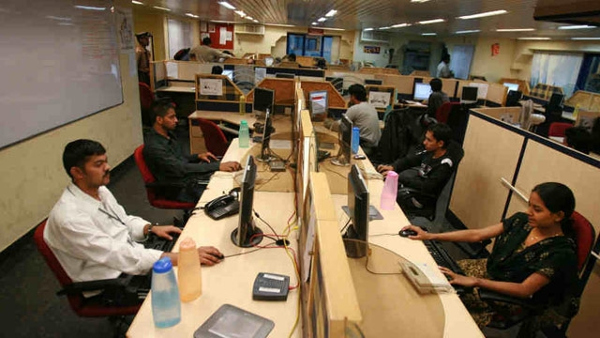Employment generation along with implementation of policies such as goods and services tax (GST) and demonetisation were the most fiercely debated topics during the Narendra Modi I government. However, a report on India’s flexi staffing describes these two policies as the key reasons behind a swift growth in job formalisation in India.
According to a report prepared by market research organisation IMRB Kantar for Indian Staffing Federation (ISF), “Over 7 million jobs were formalised during 2015-18.”
The report is based on interviews with heads of HR in 15 verticals including IT/ITeS, telecom, BFSI (banking, financial services and insurance), retail, e-Commerce, FMCG (fast moving consumer goods), automotive, manufacturing (machinery), manufacturing (non-machinery), pharma and healthcare, infrastructure, logistics, education, government, and media and entertainment.
The report also observed a 19.9 million growth in workforce in the formal sector during 2015-18, which includes a shift from informal to formal sector. Flexi-staffing workforce in India grew at a compound annual growth rate (CAGR) of 16.3 per cent to 3.3 million in 2018 as compared with 2.1 million in 2015, according to the report.
Flexi workforce is defined as fixed-term contract workforce employed by a company through an employment contract with an intermediary.
The report highlights six reforms and two initiatives by the Union government to have significant impact on job formalisation during this period. These include demonetization, GST, employee provident fund (EPF) reforms under Pradhan Mantri Rojgar Protsahan Yojana, fixed-term contract reform, Pradhan Mantri Kaushal Vikas Yojana, reforms in employee insurance and maternity benefits.
E-commerce sector leads with a 14 per cent change to formal workforce followed by manufacturing (machinery) with 11 per cent shift during 2015-18.
The formalisation of workforce indicates benefits such as provident fund, group and health insurance for the workers. The rise in number of flexi-staffing workers indicates formalisation of workforce. They get provident fund, group insurance, health insurance and other social security benefits available to formal sector workers.
The ISF report puts India as the 5th largest country in terms of flexi-staffing with 3.3 million flexi staff in year 2018 and predicts a further acceleration of 22.7 per cent during 2018-21. It will see the number of flexi staffing in India to touch 6.1 million by 2021.
Rituparna Chakraborty, president, ISF, said: During 2015-18, some of the most significant reforms and policy shifts took place in the space that seen accelerated transition from informal to formal employment, however these crucial areas were suffering from lack of data and validated perspectives.
The research relied upon sources such as the Economic Census, India Brand Equity Foundation, Ministry of Commerce and Industry, Ministry of Skill Development and Entrepreneurship, National Statistical Office and KANTAR ICUBE data to analyse workforce data for industries.
Source:IT
Image Courtesy: DNA India
You may also like
-
Trade Connect E-platform For Exports Is Single Window, Fast, Accessible And Transformational: Shri Piyush Goyal
-
Dot Simplifies Approval Processes For Telecom Licenses And Wireless Equipment
-
Coal Production and Supply Trends on Positive Trajectory
-
Union Minister To Release Booklets On Promotion Of Indigenous Species & Conservation Of States Fishes
-
2nd India-Japan Finance Dialogue held in Tokyo on 6th September, 2024
